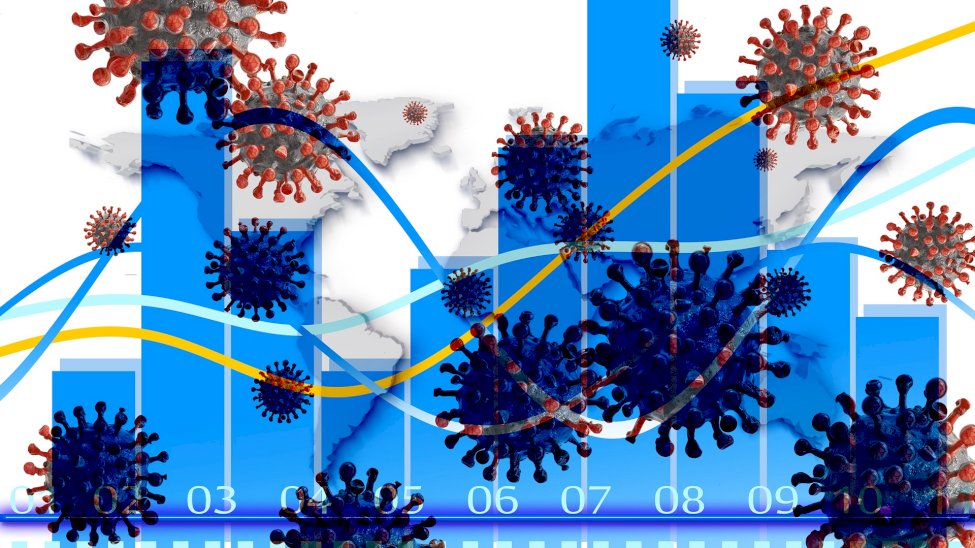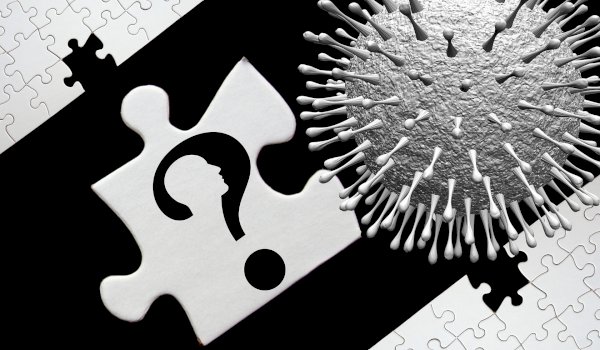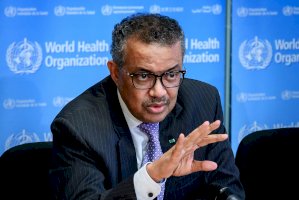There is an "infodemic" associated with the COVID-19 pandemic, meaning in short for "information epidemic", a phenomenon that portrays the rapid spread and amplification of vast amounts of valid and invalid information on the internet or through other communication technologies. The term has not been used much in the scientific literature before 2020. Since the beginning of the COVID-19 pandemic, both the production and consumption of information have increased rapidly and significantly. The WHO stressed that infodemic is a serious threat to public health, public action, social cohesion, and the political landscape as a whole. On the individual level, the infodemic creates confusion among recipients of information, specifically about the identification of reliable information. In the current pandemic, this constitutes a global scientific challenge.
Since the current infodemic is a health-related infodemic, information literacy must be focused on health—this is known as health literacy. Health literacy (HL) is one of the most important degrees to which an individual can obtain, communicate, process, and understand basic health information and services to make appropriate health decisions. Now some include personal health literacy as well as organizational health literacy. Personal health literacy is the degree to which individuals can find, understand, and use information and services to inform health-related decisions and actions for themselves and others. Organizational health literacy (OHL) is the degree to which organizations equitably enable individuals to find, understand, and use information and services to inform health-related decisions and actions for themselves and others. Those definitions emphasize people’s ability to use health information rather than just understand it, and focus on the ability to make "well-informed" decisions rather than "appropriate" ones incorporate a public health perspective.
Acknowledge that organizations have a responsibility to address health literacy. So WONCA Europe and MOs also shall address.
In the 2019 WHO Regional Meeting, Dr. Tedros told as "I leave you with 3 challenges for next year, 2020!"
- determine Root causes,
- strengthen health literacy
- prioritize the primary health care (PHC)"
Now with the current pandemic, we can easily see how important those three items are. We should be ready for all those three mentioned above, but talking about health literacy only, all of us can see that we were not, unfortunately. One can not put apart Health Literacy and PHC! Dr. Tedros, before the pandemic, reported that nearly half of adults in 8 countries in Europe were not adequate in health literacy. In 2019 WHO Europe Meeting the Technical Expertise has seen HL as a social and a critical determinant of health. It was defined as a Health Risk also! Political calls were made for health literacy like in the Shanghai declaration, for 2030. WHO has already started to use all other networks in Europe. WHO is prioritizing PHC and moving very fast on digital health which is both patient-centered and also contributing to the design of preventive measures for such risk factors in health. Soft factors and hard factors. Digital Transformation started in many countries across Europe as long-term national strategies. Most digital health users are young and there is a need to tailor the system according to the users. Communication between GPs and patients also includes online consultation and e-health.
With the pandemics, e-health applications are increasingly used as additional tools to optimize patient-centered care. There are tremendous new developments and innovations in e-health and online consultation. WONCA Europe Network EGPRN recently organized a research conference discussing many findings. Also, the integration of medical records of a patient into one personal health environment has succeeded in many countries now. Special attention must be given to teaching person-centered care in the GP training programs, with a focus on education of GP trainees in strengthening the role of the patient in general practice and how to involve patients in clinical decision making. FD/GP training programs are well designed in some member countries.
We have many positive developments, but still also many problems due to this pandemic, and its negative impact on PHC services, GP/FD education, and public health as a whole.
Health Literacy is something the Governments shall focus on more, and we as FDs/GPs want our voices to be heard by them for the benefit of the public health of our populations. There are some barriers for sure. But we have a target, we will care for the Public Health of our countries, Europe, the World, and also we will care for our patients, so we need to learn to be like water. You may see the nature of water telling us a philosophy. For example, consider the water flowing from the mountain. Selects the path of least resistance to flow. In other words, if a rock comes out, it will not deal with it, it will not fight with the rock, it will continue to flow around. Inspired by this nature of water: "Don't mess with anyone who is dealing with you, if you do, you will stay in the same place. Walk around and continue on your way. " Let's say that the water flowing from the mountain coincided with a road that could not walk around the rock. Does it accumulate and stop? No, if this is the case, water patiently begins to drill the rock drop by drop. Of course, it is not the force of the water that manages to drill the rock, it is the "continuity" of the drops, which they call "patience". We as FDs/GPs have those in our core competencies and training. Patience does not mean sitting without doing anything. The nature of water teaches that even the impossible can be achieved. Water always flows. That it is cleaned while it flows.
My respected colleagues and members of our MOs. Flow like water. Always renew yourself, every day. Don't let two days be the same. Leave yesterday, learn new things. For example, water is not afraid of change. But even though people say they like change, they are very afraid of it. It tells how beautiful the water change is. Sometimes there is rain, sometimes there is snow, sometimes there is ice, sometimes there is steam. It takes the shape of any glass design when you put in. It constantly adapts to its location, but its nature never changes. It adapts to everything, anywhere. Remember that those who adapt to nature always survived in the world. Because those who adapt are flexible. We as FDs/GPs are flexible enough to adapt ourselves within the frame of our discipline principles skills and competencies to run the PC in any health system, in any location, under any condition, including such a pandemic we are fighting in frontlines. Those who resist change are solid. Those who are flexible and those who adapt are alive. Water is clear, transparent. It is as it is. It is sharing, always nutritious, nourishes people, animals, nature. Wherever there is water, there are plants, there are animals, there are people, there is a beautiful life.
Because of this structure of water, some say "Be like water, my dear."
Prof. Dr. Mehmet Ungan
President of WONCA Europe




